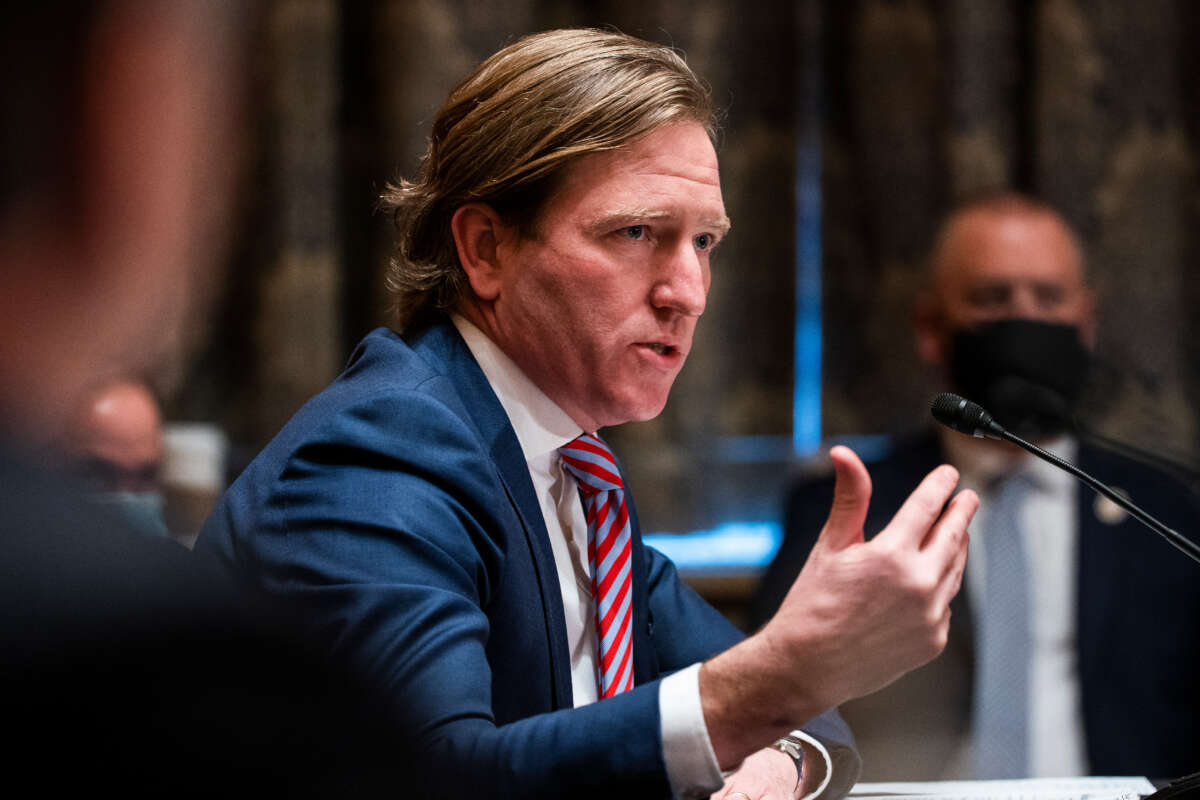The Department of Justice (DOJ) has subpoenaed former White House personnel to discuss the firing of Christopher Krebs, a cybersecurity expert who worked in the Trump administration and who outspokenly disagreed with the former president’s false election fraud claims, as part of its investigation into the former president’s attempts to overturn the 2020 presidential election.
Krebs was terminated by Donald Trump, via tweet, in mid-November 2020, after the department he oversaw (Homeland Security’s Cybersecurity and Infrastructure Security Agency, or CISA) contradicted claims being made by Trump and his allies regarding the election. Far from being rife with fraud, as Trump had alleged, “The November 3rd election was the most secure in American history,” according to a statement issued from CISA.
Before his firing, Krebs also used his government Twitter account to share a post from elections expert David Becker, who called the fraud claims by Trump “fantasies” that had “been debunked many times.”
Trump responded by firing Krebs on Twitter.
“The recent statement by Chris Krebs on the security of the 2020 Election was highly inaccurate, in that there were massive improprieties and fraud – including dead people voting, Poll Watchers not allowed into polling locations, ‘glitches’ in the voting machines which changed votes from Trump to Biden, late voting, and many more,” Trump said in his announcement on Krebs, making proclamations that have all been proven to be untrue.
On Wednesday, The New York Times reported that special counsel Jack Smith had questioned former Trump officials, including Krebs himself, regarding his termination two and a half years ago.
Smith, who was appointed as special counsel after Trump declared himself a 2024 presidential candidate, is overseeing two investigations at the DOJ relating to the former president. Recent revelations about Trump’s post-presidential handling of classified documents — including the likelihood of him sharing those documents with others at Mar-a-Lago, possibly in violation of the Espionage Act — have been grabbing headlines as of late. But Smith is also overseeing the investigation into Trump’s actions after his 2020 election loss to President Joe Biden, including his efforts to usurp the democratic process so that he could remain in the White House.
Reports on the Justice Department’s investigation of Krebs’s firing indicates that the inquiry is probing Trump’s actions during the final weeks of his presidency. Trump and his allies engaged in many questionable actions that Smith is also investigating that some legal experts view as possibly being illegal, including the coordinating of a slate of fake electors from several states to disrupt the certification process of the Electoral College on January 6, 2021.
Krebs’s firing is also part of a broader attempt by the DOJ to understand how the White House’s personnel office, under Trump, became deeply politicized, including its demand for the loyalty of current employees at that time and potential hires in the final months of his presidency. The office created a loyalty test, for example, as part of its hiring process. The department is also questioning former officials over Trump’s attempt to use the DOJ to give undue credibility to his unfounded election fraud claims.
Angry, shocked, overwhelmed? Take action: Support independent media.
We’ve borne witness to a chaotic first few months in Trump’s presidency.
Over the last months, each executive order has delivered shock and bewilderment — a core part of a strategy to make the right-wing turn feel inevitable and overwhelming. But, as organizer Sandra Avalos implored us to remember in Truthout last November, “Together, we are more powerful than Trump.”
Indeed, the Trump administration is pushing through executive orders, but — as we’ve reported at Truthout — many are in legal limbo and face court challenges from unions and civil rights groups. Efforts to quash anti-racist teaching and DEI programs are stalled by education faculty, staff, and students refusing to comply. And communities across the country are coming together to raise the alarm on ICE raids, inform neighbors of their civil rights, and protect each other in moving shows of solidarity.
It will be a long fight ahead. And as nonprofit movement media, Truthout plans to be there documenting and uplifting resistance.
As we undertake this life-sustaining work, we appeal for your support. Please, if you find value in what we do, join our community of sustainers by making a monthly or one-time gift.
